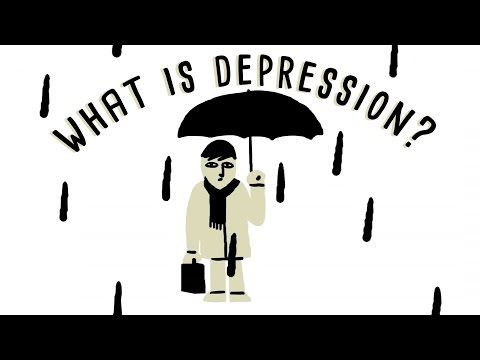What Is Depression? The Difference Between Feeling Depressed And Actually Having The Mental Illness

Perhaps the biggest misconception surrounding depression is that having depression is the same as feeling depressed. In reality, depression is a mental health disorder that persists for at least two consecutive weeks. It significantly interferes with one's ability to function normally, leaving tangible evidence on both a neurological and biological level.
In a recent TedTalk video, Dr. Helen Farrell, a Harvard Medical School instructor in psychiatry and a staff psychiatrist at Beth Israel Deaconess Medical Center in Boston, explains just how widespread depression is. Depression is the leading cause of disability in the world and in the United States, estimated to affect around 10 percent of adults. Symptoms of depression vary from low mood and loss of interest in things you once loved, to changes in appetite and feeling worthless. Although experts are still not clear as to what causes depression, they suspect that it is a mixture between genetics and environmental factors.
Doctors have noted that depression is not just a mental manifestation, but that it also elicits changes in the brain and body. For example, depression patients often have smaller frontal lobes and changes in hippocampal volume in the brain. In addition, on a molecular level, doctors believe that depression patients may have an abnormal depletion or secretion of certain neurotransmitters associated with mood, such as serotonin, norepinephrine, and dopamine.
Unfortunately, there is no diagnostic tool to diagnose depression. Still, those who believe they may be living with depression are urged to speak to a medical professional as soon as possible. There are many effective treatments used to control symptoms, and just like any other health condition, ignoring depression will not make it go away.



























